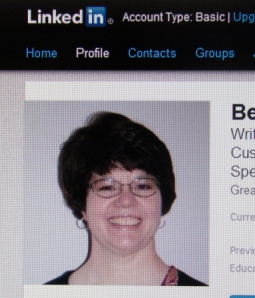Every once in a while I become aware of the changes that have occurred in my routine for various reasons. For years I headed east from my house – for work, family, errands. Everything that I needed or wanted was pretty much east with the rare exception. When my workplace actually moved closer to my home, my usual radius became about 6 miles, mostly east.
And then my life changed and now my well-worn route is south and north. Work is south, with a slight alteration thanks to the onset of construction season. (A quarter mile section of my regular road is being completely replaced, requiring me to go over a mile out of my way…) New personal commitments and interests send me north several times a month. Occasional jaunts take me to once familiar areas east of my house.
But I digress. A person that I know is starting a new job this week, and my one of my sons started a new job a couple of weeks back. Both are pleased with the opportunity for full time employment. Both are interested in doing a good job and succeeding.
A new job is exciting. But it is also unfamiliar and disorienting. A new routine, all new co-workers, tasks, procedures, culture, etc. When we start a new job, we look forward to the additional money, the opportunities to use our skills. We forget to think about the disorientation – all those new names and faces, the different commute – so much change. That disorientation can really bite hard.
It wasn’t so long ago that I was in the midst of it myself. At least being a writer helped me because of the necessary skills in observation and identification. I never stopped being able to identify with new people at my previous job. To help them to understand why their head was spinning. Even still, I had to have more than one talk with myself when starting my current job to remember the plan.
How can a person plan to be disoriented? A big part of the plan is just that – to know that it will happen, that it is a normal part of a new experience. Normal means it happens to almost everyone. The next part of the plan is to know that it is temporary. Fairly quickly something will seem familiar, and then another something and another. Friendly faces will offer assistance, ease the transition.
There is so much to learn and acclimate to in a new job, many go from being the person that everyone goes to for the answer to the person who feels lost. But you are still you. You still have the skills that got you the job, they just have to be applied in this unfamiliar place.
Things that we look forward to – a baby, a job, a house, a move, a marriage – are stressful because everything that was once familiar suddenly is shifted and disorienting. If it was an anticipated change we have trouble figuring out why we are discombobulated, disoriented and we get frustrated.
Sometimes familiar routes cease to be current routes, but fairly quickly the new route becomes familiar.
© 2015 BAReed Writing | Practical Business, All rights reserved




